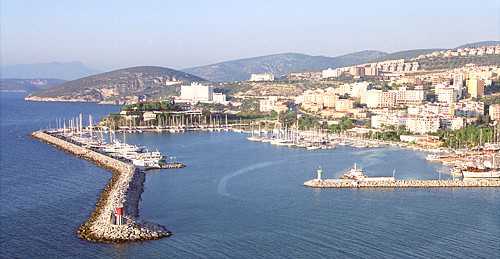The Christian Action Network (CAN), where I serve as the National Security Adviser, is being condemned by Turkey’s ambassador to the U.S. for using the Turkish flag on the cover of the organization’s new documentary, Sacrificed Survivors: The Untold Story of the Ground Zero Mosque. Ambassador Namik Tan is accusing the CAN of slandering the Turkish people by using the flag and criticizing their government’s Islamist agenda. This accusation of bigotry is an attempt to distract from Turkey’s move away from secularism to the side of Iran, Syria, Hamas, and Sudan.
The controversy erupted when the Turkish media criticized the use of the flag on the cover of the film. CAN says they wanted to use a flag with Islamic symbols to emphasize the connection between radical Islam’s goal of promoting Sharia-based governance and the Ground Zero mosque. The Turkish flag was chosen because as the CIA World Factbook explains, “the crescent moon and star serve as insignia for the Turks, as well as being traditional symbols of Islam.”
The organization said it regretted any hurt feelings caused by the decision and it did not mean to single out Turkey. CAN sought to rectify the situation by adding the flags of Saudi Arabia, Pakistan, Iran, and Sudan to the cover to identify some places where radical Islam has taken hold and is being promoted from. Turkey’s flag remained to serve as an example of how a secular, Western ally like Turkey can fall to the influence of Islamism as it has under Prime Minister Recep Tayyip Erdogan and his Justice and Development Party.
Ambassador Namik Tan wrote a letter on November 4 to Martin Mawyer, President of CAN, berating him for “unacceptable and unfair accusations about Turkey, the Turkish government and the Turkish people in your website.” He wrote, “You inaccurately and insultingly accuse the Turkish people and the government of supporting ‘radical Islam.’” He acknowledges that the group denies branding the Turkish people as a whole, but says CAN is doing this in “reckless fashion.”
However, CAN’s criticism of the Erdogan government made a specific point of explaining that the majority of Turks are not sympathetic to terrorist groups or radical Islam. Polls show that only four percent support suicide bombings, two percent have confidence in Osama Bin Laden to do the right thing, three percent have a favorable view of Hezbollah, and five percent have a favorable view of Hamas. The backlash among the Turkish people against Erdogan’s Islamist agenda was also mentioned.
The warnings about Turkey’s government are well-founded. Prime Minister Erdogan was once a member of the Welfare Party, which Soner Cagaptay of the Washington Institute for Near East Policy describes as the “motherboard of Turkish Islamists.” When his Justice and Development Party won in 2002, the Muslim Brotherhood praised them for the “exposing of the failure of the secular trend.” Under Erdogan’s leadership, Turkey has taken a confrontational stance towards Israel. It has held joint military exercises with Syria, and the President and Prime Minister have personally met with Moqtada al-Sadr, the Iranian-backed Iraqi militia leader that waged war on Coalition and Iraqi forces. Prime Minister Erdogan opposed the International Criminal Court’s indictment of Sudanese President Omar Bashir because “no Muslim could perpetrate a genocide.”
via Turkey vs. Christian Action Network | FrontPage Magazine.


